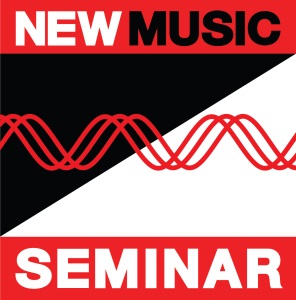The key takeaways from this seminar on the changing nature of the music business involved success: achieving success, and the very definition of success. Both are more complex than ever. With the advent of digital downloads and streaming music services, the traditional, sales-based strategies from the turn of the millennium are no longer relevant. Instead, musicians, songwriters, agents, managers, A&R people, and other music business professionals search for new ways to support themselves in what New Music Seminar Executive Director Tom Silverman called “the attention economy.” Rather than chasing sales, the music business is chasing attention—and finding as many strategies as possible for monetizing that attention.
Navigating the attention economy requires both taking on a wider swath of responsibilities and focusing more attention on specific music fans, all the way down to the individual. Panelist Steele Saldutti, bassist for pop-rock band Van Lady Love, has set aside time to interact with fans through social media, in addition to his responsibilities as a musician. This broadening of responsibilities, coupled with a narrowing of focus, is typical of the shifting strategies within the music business as a whole, an industry in which significantly fewer people are paying significantly less money, on average, for recorded music, compared to 15 years ago.
Ironically, the same technologies responsible for the reduced industry-wide sales revenues make this sort of multi-tasking easier: Instagram, Snapchat, and other forms of social media make interacting directly with individual fans significantly easier than in the past, even compared to sending emails. Similarly, the streaming services that are often blamed for cannibalizing the market for digital downloads (which had supposedly destroyed the market for CDs) provide the opportunity for more focused, nuanced sales and marketing strategies for musicians, labels, and other industry professionals.
During a panel on the uses of data in the changing music business, Will Page, Director of Economics for Spotify, told a story about a series of concerts in France by the popular MOR band Muse. Using analytics from streaming music services, the band determined which songs were uniquely popular in France, and used that information to decide which songs to play as encores in France. These new data-based insights are equally available to bands several tiers—economically and in terms of popularity—below bands like Muse. Artists (and their representatives) at all levels can use information gathered from Spotify, Tidal, Beats Music, etc., to help make decisions regarding touring/booking, distribution, marketing and publicity.
Another panelist, Alex White, CEO of Next Big Sound, described how one of his first responsibilities as an intern for Universal Music in the mid-2000s was to call record stores in various markets to collect information on the local popularity of various artists, in order to help make decisions regarding touring, publicity, etc. This time-consuming process has been replaced by the new, technologically-fueled, data-based approach that is more reliable, more specific, and more efficient. Another panelist noted that the raw data that the industry now collects is oer 500 times more than that collected even a decade ago—and both the amount of data and the usefulness of it figures to increase from here.
It is undeniable that music sales revenues are significantly lower than they were 15 years ago, and revenues from areas such as streaming royalties, advertising fees, synch fees, touring, etc., may never make up the deficit. But throughout the conference, participants expressed optimism that the business will survive and thrive despite shifting listener habits.
While this optimism may have been overstated— in particular, I question Silverman’s repeatedly-stated goal of a $100 billion music industry—NMS participants made convincing cases for two promising changes: 1) the music business has finally adapted to the technological revolution begun with filesharing, and rather than trying to fight new listener habits, the industry works with them; and 2) that the general public, despite paying less for music, still listens to music as much as ever before—albeit in different formats than in the past.
Of course, this more forward-thinking, technologically enthusiastic industry may neither avoid costly mistakes nor consistently properly anticipate listener habits, and who will ultimately benefit from these changes remains to be seen. But the overall attitude at the New Music Seminar 2015 was enthusiastic and optimistic, and looked toward the future instead of the past
—Chris Alarie








Be the first to comment!